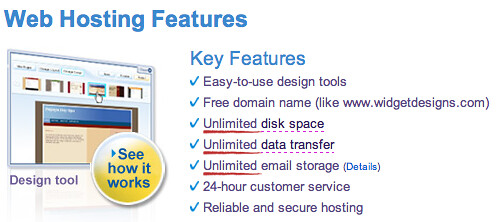A business is only as strong as its weakest link, and this can often be the web host for its site. If you don’t have training in programming, having to deal with technical jargon can become overwhelming. When things get confusing, people tend to randomly pick one and buy it. This may sound neat in the abstract, but the following article will explain how to avoid the problem in the first place.
The features that hosting companies offer varies widely. Compare the levels of service and fulfillment for the specific features that are important to you. The price advantage of one host may not be worth the savings if they lack certain features that you require.
Always register your business’ domain name on your own, outside of your hosting site. This way, if a shutdown or argument ensues, your valuable domain name will remain protected. This places the control of your domain in your hands, rather than your host’s.
When you choose a web hosting company, select one that resides in the specific country of the audience you are targeting. If you’re targeting folks in the UK, your hosting plan’s data center should also be there.
You should ask about security when choosing web hosts. Multiple threats are discovered every day on the Internet, making your site a target. Be sure that the web host you choose has ways to deal with common threats like DDoS attacks. Know the potential risks to your site if your host is attacked.
Will monthly payments or a one-time payment best suit your budget? You have no way of knowing what your needs will be a year from now. If you do choose to make a lump payment and decide at some point in the future to switch providers, you might not receive a refund.
Web Host
You should select a web host that offers you a detailed report on your web traffic statistics. Add your own site counter to track the number of visitors your site gets, then compare that to your web host’s stats to check for accuracy. Use this information to tweak the way that you reach out to the intended market for your business.
Do not limit your research to a host’s website and advertisements. Look for unbiased reviews written for independent sites, and you will have a clearer idea of the host’s strengths and weaknesses. Objective reviews by past or current customers will give you the most honest assessment of a web host.
Don’t sign up for free website hosting simply due to the fact that it’s free. Free hosts pay for themselves in several ways, including adding banner ads and other distractions to your site. Furthermore, you are not allowed to change or control these advertisements. This will make your site look sloppy and unprofessional.
For enhanced usability, use web page hosting providers that offer a cPanel. A cPanel will allow you to easily add applications to your site. The applications in a cPanel are simple to use as opposed to their SSH counterparts. This will make running your site easy and efficient.
Look for a website hosting that has won lots of awards. This gives you a general idea about the host’s technical support and customer service. Not all awards are reliable, but in most cases, Internet users vote for their favorite hosting service, meaning hosts with many awards are probably a safe bet. Try to find a hosting company that has a number of such awards.
Now you should be able to go back over some of that perplexing lingo you’ve heard before, and see if you are able to notice the pros and cons in the available hosting plans. Do your research, select a company and get your website online ASAP!

